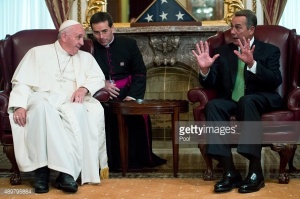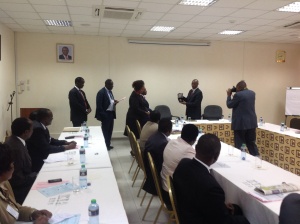Policing is a complex public service provision business. It is also an essential baseline service that is monopolised by States since security is a government’s first line of business to secure the homeland.
Challenges of policing are myriad. Seeking for effective security and crime countermeasures is equally a nightmare: not a walk in the park, as it’s famously said. This is a challenge faced by almost all public Polices worldwide.
Police strategists are expected to design and deliver appropriate and fitting countermeasure solutions to tackle the crime menace. But more often than not, we look in the wrong direction by also trying so hard to achieve so little.
I’ am a firm believer of strategy as an organised, all-encompassing and holistic approach of containing crime. This is so since strategy utilises System Thinking paradigm in aligning organisational activities and processes including structural changes and cultural character of the organisation. To arrive at such a perfect-fit as a driver into the known and desired future relies on diverse and relevant market variables within the policing industry and general security environment.
This is to say that through a strategic orientation, careful thought is put into decisions. And such decisions should be aimed at tackling underlying issues to offer longer-term solutions that can spur and impact the organisation and society positively.
But the challenge is when an organisation lacks a systemic view and understanding of key market variables. When those in leadership get fixated on quick-wins, then focus is only to allay immediate and visible surface symptoms. This may solve the problem, but in the short-term only to resurface later in a bigger threatening way. This is the challenge the world is facing with environmental challenges when strategies and policies are uncoordinated and unsustainable hence ameliorating and manifesting in different forms later on. And that’s why el-nino is a current environmental threat due to long-time neglect in tackling fundamental and systemic issues impacting global environment.
So how can policing adopt System Thinking in its strategic way of conducting police business? First we must develop a penchant for a long-term view. We should shun populism and activism as options to policing. We need to embrace the Organisational Learning culture as a basis of systems thinking. Once this is a cultural reality of doing normal business, then we shall start asking tough criminological questions and engage in data and analytic-based interrogations and conversations on how to address prevailing challenges. That’s the only way that long-lasting and positive policing impacts can be designed and delivered as realistic crime countermeasures.
Peter M. Senge, the guru of Systems Thinking offers a good guideline in his classic The Fifth Discipline: The Art & Practice of Learning Organisation (a book that I not only recommend for all leaders especially in police but also vouch for as a basic resource material for all leadership classes). In this detailed guideline, Senge shares his wisdom on how a long-term view culture can be developed and practiced by managers and organisations to push forward the culture of systems thinking in the context of a learning organisation.
In brief, Systems Thinking is the approach of looking at things and phenomena as either the whole (totality), and only made up of parts or components, or look at parts as an aspect of the whole. In respect to crime, this thinking is rooted in the sociological school of thought or perspective. As such the systems thinking approach will alter our way of looking at, appreciating and tackling crime. It will thus influence the way policing resources, policies, programmes, projects and even deployment are approached. This is not to suggest that policing strategy and policies shall or should only be informed by sociology, but other cardinal influences especially informed by the classical schools of free choice being as equally relevant, and therefore all mixed for a better and holistic solutions’ generation.
Therefore we need to dig deeper to understand the causation of crime more than what is visible on the scratched surface (the tip of the iceberg). What easily manifests are mere symptoms and not underlying issues of crime causation concern. An aspirin may be good for a day or so for the persisting headache, but not in the long-run unless a visit to the doctor with lab tests is complete to address the underlying primary illness.
Crime is a wicked and vicious business, and operating in a systemic vicious circle. Unless we first get into the cruel basics of how crime originates, and then later get dirty and focused in the backroom trenches of data through analysis and deeper intelligence appreciation, we may often miss the big picture of the true crime experience. For example, the focus should ordinarily be on the offender more than the crime per-se as is always the case. This is so because a few in the society are responsible for a bigger share of the crime experience than the rest. In fact if you adopt the reasoning of the Pareto Principle, then you will acknowledge that only 20% or less of criminals cater for more than 80% of the total crime experience. So if you focus on crimes’ description alone without the connecting thread – offending – then we shall wrongly believe that such crimes are exclusive to the others yet they share a commonality and history.
Another important aspect of Systems Thinking is the ability of learning and understanding what Senge calls the Archetypes. Key amongst them are the Limits to Growth and Shifting the Burden. These key structures are at the core of all dismal performance at either the corporate or personal levels. Once they are understood, then next stage is how to leverage in order to break the circle of lethargy that exists within organisational performance and ultimate success.
In a sequel post, we shall endeavour to discuss how this two Archetypical structures lead to police organisational weakness, and how we can circumscribe around the phenomenon to bounce back to service productivity through the power of leverage.
Let’s keep the vigil, hopefully…






